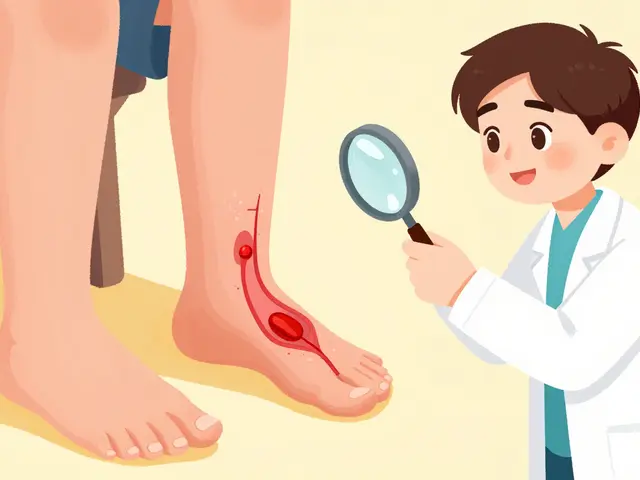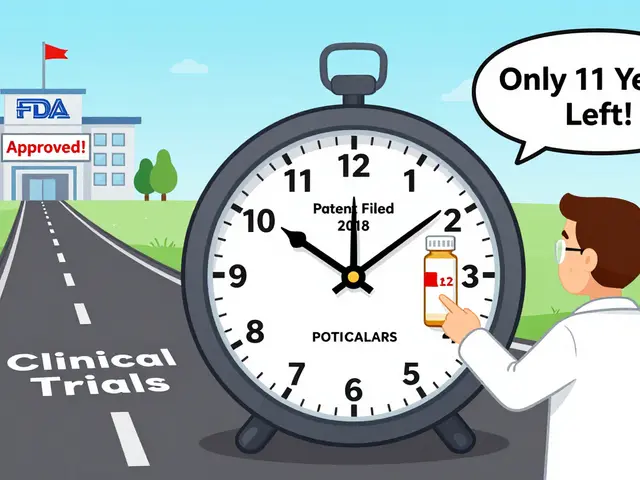Vitamin K Sources: Food, Supplements, and Health Benefits
When you talk about vitamin K source, any food, supplement, or natural product that provides vitamin K, a fat‑soluble vitamin essential for blood clotting and bone health. Also known as K‑rich foods, it plays a critical role in the body’s ability to form clots and keep bones strong. Vitamin K1, the plant‑based form called phylloquinone is the most common dietary K. Vitamin K2, the bacterial‑derived form known as menaquinone shows up mainly in fermented foods and animal products. Understanding these three entities—vitamin K source, K1, and K2—helps you choose the right foods and supplements for your health goals.
Food and Natural Sources
The easiest vitamin K source is what you put on your plate. Leafy greens such as kale, spinach, and collard greens top the list for phylloquinone. One cup of cooked kale can deliver more than 1,000% of the daily reference intake, making it a powerhouse for clotting factors. Cruciferous veggies like broccoli, Brussels sprouts, and cabbage also contribute solid amounts of K1 without the bitter taste some people associate with kale. Beyond greens, certain fruits—especially kiwi and avocados—add a modest boost.Fermented foods bring Vitamin K2 into the picture. Natto, a Japanese soybean product, is the undisputed champion, offering up to 1,000 micrograms of K2 per serving. Hard cheeses, gouda, and brie also contain menaquinones, albeit in lower concentrations. Egg yolks and butter from grass‑fed cows round out the animal‑based sources, delivering K2 along with healthy fats that aid absorption. When you combine leafy greens with a serving of fermented food, you cover both K1 and K2 pathways, supporting blood clotting and bone mineralization simultaneously.
Why does the K2 vs. K1 distinction matter? Studies show K2 is more effective at directing calcium to bones and teeth, while preventing it from depositing in arteries. This means a diet rich in K2 may reduce the risk of vascular calcification and support stronger skeletal structures. On the other hand, K1 is the primary driver for activating clotting proteins in the liver. Together, they create a balanced system: K1 helps stop bleeding, K2 ensures calcium stays where it belongs.
Supplements, Interactions, and Practical Tips
If you struggle to eat enough greens or fermented foods, a supplement can fill the gap. Over‑the‑counter vitamin K tablets usually contain K1, while specialty formulas market K2 as MK‑7 (a long‑chain form with higher bioavailability). Typical doses range from 100 µg for K1 to 180 µg for MK‑7 daily. The key is to match the supplement to your health context. People taking blood thinners like warfarin must monitor vitamin K intake closely, because sudden spikes can blunt the medication’s effect. In those cases, a consistent, moderate amount of K1 from diet is safer than high‑dose supplements.
Absorption of any vitamin K source improves when taken with fat. A drizzle of olive oil on your salad or a handful of nuts alongside a supplement can make a noticeable difference. Cooking methods also matter; lightly steaming greens retains more phylloquinone than boiling, which can leach the vitamin into water. For fermented foods, avoid excessive heat, as it can degrade menaquinones.
Finally, remember that vitamin K is stored in the liver and body fat, so daily intake doesn’t need to be massive. Aim for a balanced plate: half vegetables (especially dark leafy greens), a quarter protein (including a source of K2 if possible), and a quarter whole grains or starchy veg. This simple pattern gives you a reliable vitamin K source without over‑thinking every bite.
Now that you know which foods, supplements, and habits deliver the best vitamin K, you can compare them to the medication guides and buying tips we feature below. Whether you’re looking for natural ways to boost clotting, protect your bones, or simply choose the right supplement, the articles that follow dive deeper into each option.
Garden Cress Health Benefits: The Unexpected Super‑Herb You Need
Explore the hidden health perks of garden cress, from immune support to bone strength, and learn easy ways to add this nutrient‑dense herb to your daily routine.
Read More





